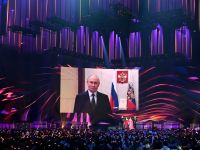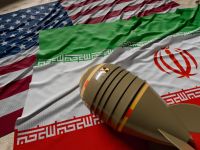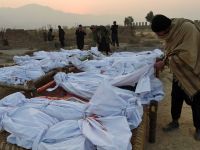Sales of gold in the UAE rose 1.8 percent during the first half of 2000 compared with the same period last year. Total sales of gold by the end of July amounted to 54 tons compared to 36 tons for the same period last year.
Dr. Farraj Pati, director of the Gulf Region in the International
Gold Council, predicts an increase in aggregate sales of gold in
the UAE markets to 85 tons by the end of 2000. This he sees boosted
by an increased number of tourists and visitors to the UAE and by
the distinguished status of Dubai.
Pati says Dubai is the "city of gold" because it is creative in
promotion and marketing ideas that attract and encourage shoppers
to buy gold. These include recreational festivals and activities
linked with shopping, as well as promotion deals and competitive
prices.
Pati pointed to statistics from the International Gold Council
which showed that 80 percent of visitors to Dubai prefer to buy
gold there because it combines competitive prices - in some cases
cheaper than in the country of original manufacture - high quality,
and the international standards and specifications of the gold
industry that are enforced.
As for sales of gold in the Gulf Cooperation Council countries as
a whole, Pati said they also are getting good results since. The
total sales in the GCC, with the exception of Saudi Arabia, rose by
4.57 percent during the last three months to reach 86.6 tons. The
total sales of those countries reached 144.7 tons in 1999.
The director of the Gulf Region in the International Gold Council
urged the GCC states to focus for the time being on the local
consumption markets through coming up with new promotion and
marketing ideas. The GCC has lost part of its foreign markets, such
as India, which was considered the first market to the Gulf
countries in terms of re-exporting gold. Indian merchants prefer to
deal directly with world gold companies without having to pass
through the markets of the region.
Pati added that Dubai's marketing ideas initiated by institutions
and companies with the support and backing of the Dubai government
contributed to increasing gold sales between 80 to 100 percent
during the past six years. He said the Dubai Shopping Festival 2000
brought the sales of gold up by 80 from that of normal days.
Commenting on efforts by the International Gold Council to
activate sales of gold in the retail markets, Pati said the council
is working on setting up a random marketing program so that gold
can be a commodity people can buy normally. This program aims to
eliminate the idea of buying and owning gold just on special
occasions. The council will launch this idea through offering
products at reasonable prices for all levels of income.
Pati said the council is preparing training courses for some Arab
designers to revive and refurbish their skills through the Bahrain
Institute for Gold and Jewelry. The aim is to revive and adapt Arab
jewelry to the spirit of modern designs and the desire of young
Arabs to embrace anything new.
Pati said that the project to revive Arab design, now being
adopted by the council, will spread these designs over the world,
especially since jewelers will focus on the 21-carat standard,
which is the most popular mark selling in east Asia and Europe.
Demand for gold in the Middle East, including re-exporting, was
421.3 tons during the first half of 2000, an increase of 9 percent
compared with the same period last year, according to statistics of
the International Gold Council. The council estimated the
consumption of gold in the GCC countries, excluding Saudi Arabia,
at 144.7 tons last year. –(Albawaba-MEBG)
© 2000 Mena Report (www.menareport.com)







